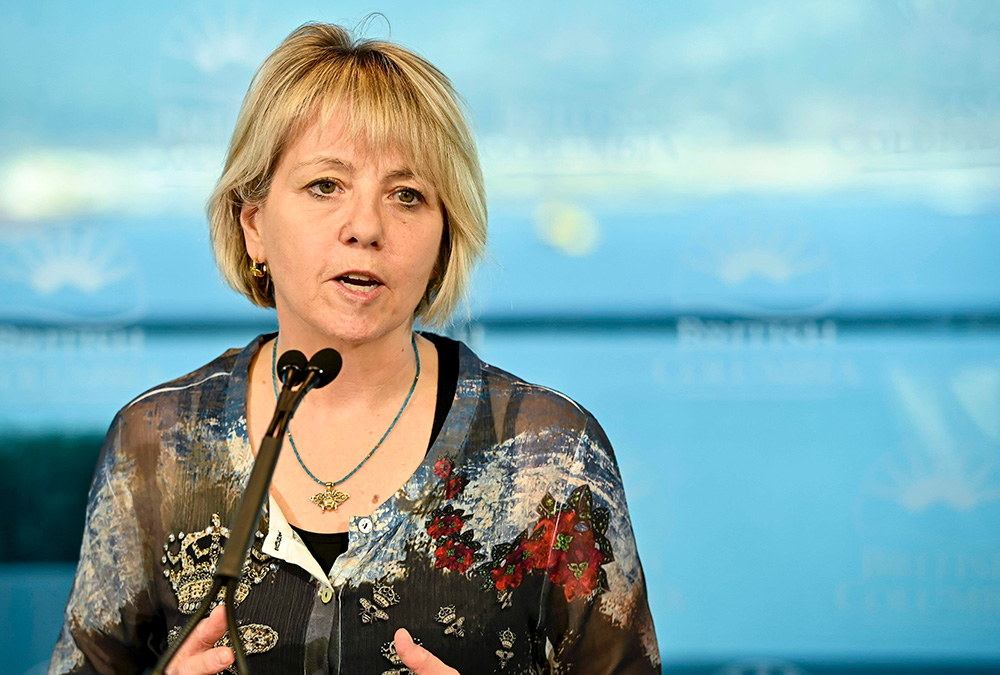B.C. health officials maintain they have enough beds and ventilators to cope even if COVID-19 hits the province as hard as it struck northern Italy.
But the province has also released ethical guidelines on deciding who should get treatment if resources are stretched.
The COVID-19 ethical decision-making framework for health-care workers notes that hard decisions about who gets a ventilator or priority care could be on the horizon.
Provincial health officer Dr. Bonnie Henry said last week the framework provides “a structure for how those decisions will be made so that no single individual clinician or health-care worker will have to make those entirely terrible decisions on their own.”
The guide sets out goals including transparency, integration of consistent values and public awareness. The guidelines should also “contribute to improved health outcomes and service delivery, and maximize human and financial resources,” the document states.
But the framework also raises questions around the care vulnerable patients with other illnesses might receive should the COVID-19 pandemic stretch the health-care system beyond its limit.
The guidelines set out decision-making principles like respect, fairness and flexibility.
But it also notes the need for “utility” — with resources to be distributed “such that the maximum benefits to the greatest number will be achieved.”
Eike-Henner Kluge says that raises serious issues.
“The criterion of utility throws a monkey wrench into everything,” said Kluge, a University of Victoria philosophy professor with a focus on medical ethics.
If utility is taken as the greatest health benefit to the greatest number of people, there could a minority of patients who will not be treated, Kluge said.
“You do not want to waste resources that, in fact, will never have a successful outcome,” said Kluge, a former director of ethics and legal affairs for the Canadian Medical Association.
But applying the principle is complex.
If patients are denied treatment based on their chances of recovery, for example, that could mean older people are most affected, he said.
And decisions on who gets treatment based on whether people have other illnesses or conditions could effectively discriminate against vulnerable populations. People who are experiencing homelessness, for example, tend to have poorer overall health and could be pushed to the back of the queue.
The principle of utility could contravene other aspects of fairness, such as equality or the notion that everyone should have equal access to resources, Kluge said, particularly if it aims to maximize social or economic benefit if an individual recovers.
Henry stressed the framework “respects the value of every individual life” and is not prescriptive for individual situations.
But Kluge said that’s the difficulty with guidelines — “they’re very abstract.” That lack of clarity puts enormous strain on health-care professionals if they face difficult decisions about who gets a ventilator if supplies are scarce.
Kluge notes that resource allocation happens all the time in the health-care system.
In Canada, conversations around access are shaped by the understanding that health care is considered a social right, not a commodity.
“There’s another aspect of the right to health care, that also means we have certain duties,” he said. “As a patient or a prospective patient, I have the duty to take the best steps I can to not draw on those resources if I don’t have to.”
By physically distancing and limiting outings to only necessary errands, individuals can lower the chance that they or someone else they came in contact with will need medical care, he noted.
“Members of the public are responsible too.” ![]()
Read more: Health, Coronavirus, BC Politics
















Tyee Commenting Guidelines
Comments that violate guidelines risk being deleted, and violations may result in a temporary or permanent user ban. Maintain the spirit of good conversation to stay in the discussion.
*Please note The Tyee is not a forum for spreading misinformation about COVID-19, denying its existence or minimizing its risk to public health.
Do:
Do not: